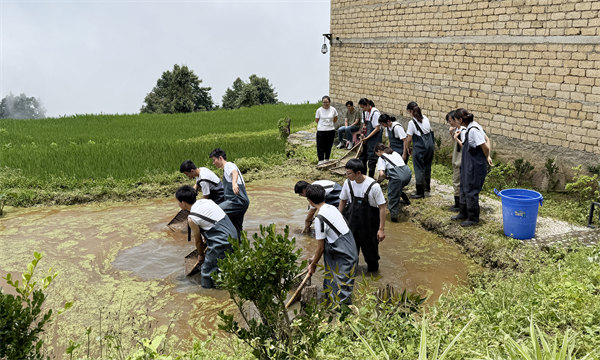Digital natives go rural


"We conduct in-depth interviews with farmers and use questionnaires to understand their current situation and the difficulties they encounter," Shi explained. "This large-sample approach helps us identify systemic issues and develop practical solutions."
Shi pointed out that many local agricultural products have strong market potential, with red rice commanding premium prices and loquat cultivation generating substantial income.
Still, challenges remain.
"Many farmers are seeing shrinking profits, especially in mango cultivation, where declining prices have led to reduced investment in crop management," he said. "Studying successful models, building brand identity, and developing value-added processing could help boost their income."
For sociology freshman Chang Renqian, the fieldwork was an eye-opening experience.
"It helped shape the direction of my future academic pursuits," he said.
Chang believes social media influencers could help attract more young people back to agriculture, especially as rural areas face population decline.
"While many people recognize the importance of agriculture, they're often discouraged by the perceived difficulties," he said. "But influencers like Li Ziqi, who document rural lifestyles and return to the countryside as content creators, can help revitalize local economies and inspire more young people to reconnect with rural life."
The program's impact extends beyond academia.
Jiang Ruoxi, a SUFE graduate now working in Honghe prefecture, Yunnan province, credits her 2015 village survey experience in Zhaotong city with guiding her career choice.
"The program strengthened my professional knowledge and ignited my passion for public service," she said.




































